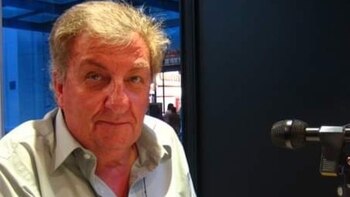
The third and final day of the 138th IOC Session in Tokyo included praise and awards for the organizers of the postponed Tokyo 2020 Games and the elections of new members as the organization looks toward Beijing 2022 in less than six months.
IOC president Thomas Bach told members including those attending remotely that, despite the many concerns about holding the Games in a pandemic, in the end they were successful.
“I think we can say with confidence that these Olympic Games happened at the right time and that the athletes, for whom we did it, really appreciated it and considered it also to be the right moment in time to come together again and to give hope and confidence, not only to the Olympic community but to the entire world,” Bach said.
Tokyo 2020 president Seiko Hashimoto and CEO Toshiro Muto, following their reports to the Session, were given a standing ovation thanking the organizing committee for its efforts in making the Games a reality.
Later, it was announced that Hashimoto, Japanese prime minister Yoshihide Suga and Tokyo governor Yuriko Koike would receive the Olympic Order in Gold and Muto the Olympic Order in Silver for their part in supporting the Games. Bach said that without the support of Japanese authorities the Games wouldn’t have happened.
Anita DeFrantz of the USA, who is at the end of her second four-year term as first vice-president, and Athletes’ Commission chair Kirsty Coventry, whose term was also over, were especially praised by Bach for their work.
DeFrantz remains an IOC member, with Aruba’s Nicole Hoevertsz replacing her as vice-president. Coventry will be staying on as an individual IOC member.
Three separate elections followed, with Emma Terho being approved as the new Athletes Commission chair replacing Coventry.

Astrid Uhrenholdt Jacobsen, an Olympic cross-country skiing gold medalist from Norway, was elected to fill the vacancy created when Kikkan Randall resigned in June from the Athletes Commission for personal reasons.
Finally, the four athletes who were elected by their peers earlier this week to sit on the Athletes Commission all passed muster with the IOC and are now members. Pau Gasol of Spain, Yuki Ota of Japan, Federica Pellegrini of Italy and Maja Wloszczowska of Poland will be joined by a fifth athlete appointed by Bach to ensure that Africa has one representative on the Athletes Commission.
Kenya’s Humphrey Kayange, who received the most votes of any African candidate in the athletes election, was approved to replace Coventry as the lone African member of the AC.
Richard Pound, the longest serving IOC member, touched on IOC membership during his traditional closing remarks as doyen, saying “choosing members with the requisite skill sets [is] a matter of particular importance” and “becomes increasingly critical as the Olympic Movement expands”.
“We have to continue to look forward to a different, perhaps radically different, world informed by the past but not shackled by it. This will necessarily involve ongoing reassessment of the role of IOC members,” Pound warned.
He also summed up the Tokyo 2020 experience, saying “As we meet today, we’re here to recognize that a miracle of sorts has occurred and not just as a passive occurrence but one that has been caused. Let us celebrate it and those that made it possible.”
The IOC members also approved a change to the Olympic Charter that gives the Executive Board more ammunition in its ongoing fight with the International Weightlifting Federation over the IWF’s failures to address governance and doping issues.
The amendment would allow the Executive Board to suspend sports from the Olympic program without the approval of the full Session. Removing the sport from the program would still require a vote of all IOC members.
The IOC has threatened to remove weightlifting from the Paris 2024 Games if the IWF does not follow the IOC’s reform recommendations.
Últimas Noticias
Karate stars on its Olympic debut as all eight golds go to different nations
Japan, Spain, Egypt, Italy, Bulgaria, France, Iran and Serbia all hit the gold medal trail in karate at Tokyo 2020.

U.S. Sweeps Olympic golf gold medals as Nelly Korda claims victory
Korda holds off surging opponents to win women’s individual stroke play tournament by one shot as storms subside.

Japan, Italy and Serbia strike for gold on day two of karate competition
All six gold medals have been won by different countries, illustrating how competitive the sport is at the elite level and how prominent it is worldwide.

Heavyweight glory for USA’s wrestling phenom Steveson, who nets $250,000 for his last-second win
The gold medal was secured at the death, with a pair of late takedowns including one with less than a second remaining.

A success story for the IOC and Thomas Bach: new Olympic sports and the growth of mixed events
The president himself admitted the doubts he had before the additions, but the passage of surfing, climbing, skateboarding and karate to Tokyo 2020 was as successful as it was promising, and contributed to adding joy to the Games. The mixed events were another success.





